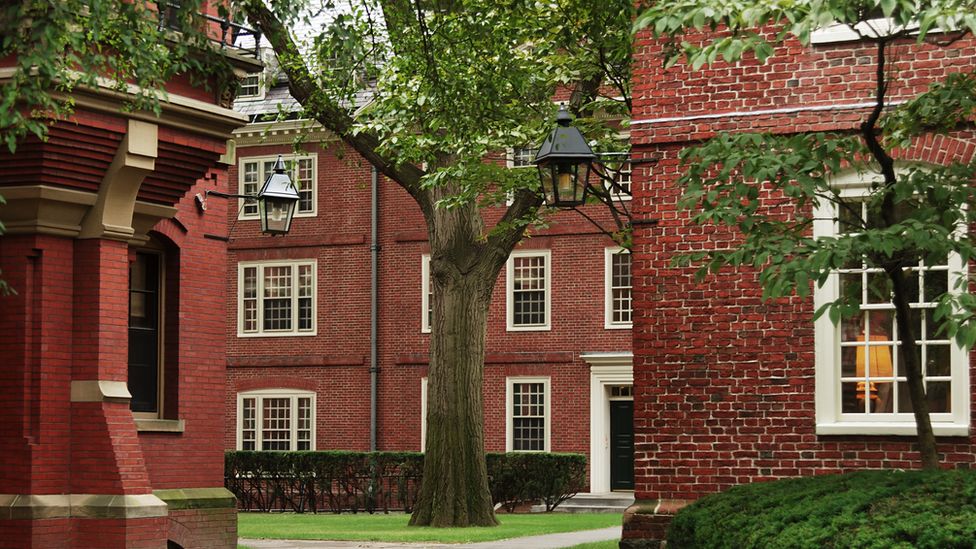-

-
-
Loading

Loading

Harvard University is currently facing a crisis due to its legacy admissions policy, which gives preferential treatment to the relatives of alumni. This policy has come under scrutiny, with lawmakers arguing that it perpetuates inequality. A landmark court case exposed this practice, further fueling the call to end legacy admissions. Harvard University has long been known for its ability to propel students into influential positions in politics, business, and technology. However, the recent Supreme Court decision against affirmative action has highlighted the university's preference for legacy applicants. Legacy admissions are a common practice among elite American universities, including the Ivy League schools. It means that if a close relative attended the university, an applicant may have a higher chance of acceptance, even if their qualifications are similar to other non-legacy applicants. While many forms of class privileges in society are based on connections and personal factors, the court case revealed how legacy admissions allow certain applicants to bypass the regular admissions process. This has sparked calls for an end to the policy, both from state legislators and Harvard students themselves. The court case also shed light on the fact that legacy admissions tend to favor white and wealthy students, which goes against the push for diversity and inclusivity in higher education. Documents filed in the Supreme Court case showed that legacy applicants, along with athletes, relatives of donors, and children of faculty or staff, receive preferential treatment during the admissions process. While only 5% of applications come from these "ALDC" candidates, they make up approximately one-third of acceptances, with around 70% of them being white. Research conducted by Opportunity Insights, a group affiliated with Harvard University and Brown University, revealed that legacy applicants were four times more likely to be admitted compared to non-legacy applicants with similar test scores. However, this advantage disappears when legacy students apply to other top universities that do not consider their legacy status. The study also found a correlation between attending Ivy League universities and future success. Students who attended Ivy League schools were 60% more likely to be in the top 1% income bracket and three times more likely to work in prestigious fields compared to students who attended flagship public universities. These findings are supported by other studies, including a 2019 report from the National Bureau of Economic Research, which indicated that legacy admissions heavily benefit white students. Legacy admissions are a remnant of the early 20th century when universities aimed to exclude the growing immigrant population. Harvard defends its legacy admissions policy, stating that it helps foster strong relationships between the university and its alumni. The institution argues that these connections provide vital support, including financial aid and contributions to its endowment, which is the largest in the world at $50 billion. Nevertheless, critics argue that these privileges maintain the status quo rather than creating a fair and equal society. To address this issue, Boston's state legislature is considering a bill that would impose fees on schools like Harvard that provide legacy admissions benefits. Some lawmakers argue that elite universities should focus on admitting a more diverse range of students, including those from working-class backgrounds. Harvard is currently under scrutiny from the US Department of Education's civil-rights probe due to a lawsuit alleging that the university gives preference to white, wealthy applicants through its legacy and donor admissions practices. While there are differing opinions among students, with some believing that legacy students deserve a place at Harvard, others argue that there could be alternative ways to fund the university without disadvantaging other students. Harvard University President Claudine Gay has acknowledged the need for discussion and possible reforms following the Supreme Court's decision on affirmative action. However, the university has not yet responded to requests for comment. In conclusion, Harvard University's legacy admissions policy has come under fire due to its perpetuation of inequality. Lawmakers, students, and civil-rights groups are advocating for an end to this practice, arguing that it hinders diversity and equal opportunities in higher education. The outcome of this debate will impact not only Harvard but also the broader conversation surrounding admissions policies in elite universities.